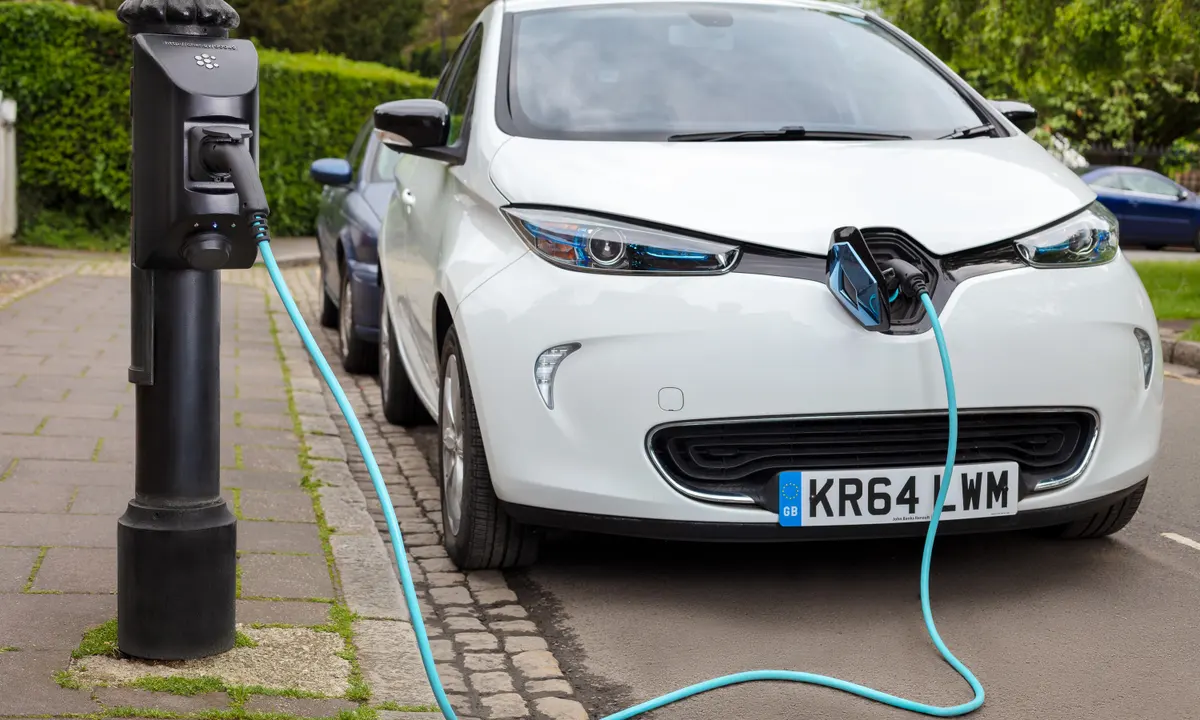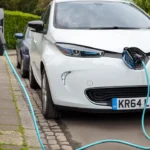

The Ultimate Guide To Buying Electric Cars
In this guide we explain to you everything you need to know about buying an EV.
Electric vehicles (EVs) are rapidly gaining popularity as more people recognize their environmental benefits and cost-saving potential. With advancements in technology, EVs have become a viable option for everyday transportation. However, buying an electric car requires careful consideration of various factors. In this comprehensive guide, we will explore everything you need to know before purchasing an electric car, from understanding different types of EVs to evaluating charging infrastructure and range limitations.
Hybrid cars combine an internal combustion engine with an electric motor. They use a small electric motor to supplement the gasoline engine, resulting in improved fuel efficiency. Hybrid cars do not need to be plugged in for recharging, as their batteries are primarily charged through regenerative braking.
Understanding Electric Vehicles
Electric vehicles, as the name suggests, use electricity instead of gasoline to power their engines. EVs can be broadly categorized into three types: fully electric cars, hybrid cars, and plug-in hybrid cars.
Fully Electric Cars: Fully electric cars, also known as battery electric vehicles (BEVs), rely solely on electricity for power. They do not have an internal combustion engine and are powered by large batteries that store electrical energy. Fully electric cars produce zero tailpipe emissions and offer a smooth and quiet driving experience. However, their range is limited, and recharging the batteries takes longer compared to refueling a gas-powered car.
Hybrid Cars: Hybrid cars combine an internal combustion engine with an electric motor. They use a small electric motor to supplement the gasoline engine, resulting in improved fuel efficiency. Hybrid cars do not need to be plugged in for recharging, as their batteries are primarily charged through regenerative braking. This technology allows the electric motor to generate electricity while slowing down or braking, which is then used to power the vehicle or charge the battery.
Plug-in Hybrid Cars: Plug-in hybrid cars (PHEVs) are similar to hybrid cars but with a larger battery and a more powerful electric motor. PHEVs can be charged using an external power source, such as a wall socket or a dedicated charging station. They offer a limited electric-only range, after which the gasoline engine takes over. PHEVs provide the flexibility of driving on electric power for short trips while having the option for longer journeys using the gasoline engine.
Benefits of Electric Vehicles
Electric vehicles offer several advantages over traditional gasoline-powered cars. Let's explore some of the key benefits of owning an electric car:
Environmental Benefits: Electric vehicles produce zero tailpipe emissions, reducing greenhouse gas emissions and air pollution. By driving an electric car, you can significantly contribute to reducing your carbon footprint and improving air quality.
Cost Savings: Although electric cars have a higher upfront cost compared to gasoline cars, they offer long-term cost savings. Electricity is generally cheaper than gasoline, resulting in lower fuel costs. Moreover, electric vehicles have fewer moving parts, reducing maintenance and repair expenses over time.
Smooth and Quiet Driving Experience: Electric motors provide instant torque, delivering quick acceleration and a smooth driving experience. Electric cars are also quieter compared to traditional cars, eliminating engine noise and vibrations.
Government Incentives: Many governments offer incentives and tax credits to encourage the adoption of electric vehicles. These incentives can significantly reduce the cost of purchasing an electric car and make it more affordable.
Factors to Consider Before Buying an Electric Car
Before buying an electric car, it's essential to consider various factors to ensure it meets your needs and preferences. Here are some key factors to consider:
1. Range
Range refers to the distance an electric car can travel on a single charge. It is important to consider your daily driving habits and the range required to meet your transportation needs. Most electric cars offer a range of 200-300 miles, which is sufficient for the average daily commute. However, if you frequently drive long distances or live in an area with limited charging infrastructure, you may want to consider a car with a longer range.
2. Charging Infrastructure
Charging infrastructure plays a crucial role in the convenience of owning an electric car. It's important to assess the availability of charging stations in your area, both public and private. Most electric car owners primarily charge their vehicles at home, utilizing Level 2 chargers for faster charging. However, access to public charging stations is essential for longer journeys and emergency situations. Research the availability and accessibility of charging stations in your vicinity before purchasing an electric car.
3. Charging Speed
Charging speed determines how quickly your electric car can recharge its battery. Different charging levels offer varying speeds:
Level 1 Charging: Level 1 charging uses a standard household outlet (120 volts) and is the slowest charging option. It typically provides a range of 3-5 miles per hour of charging.
Level 2 Charging: Level 2 charging requires a dedicated charging station and utilizes a 240-volt power source. It provides faster charging speeds, delivering a range of 5.5-60 miles per hour of charging, depending on the car and charger.
DC Fast Charging: DC fast charging, also known as Level 3 charging, is the fastest charging option. It utilizes high-powered charging stations and can provide a significant range boost in a short amount of time. However, not all electric cars are compatible with DC fast charging.
Consider your daily driving habits and the availability of charging options to determine the charging speed that best suits your needs.
4. Cost and Affordability
The cost of electric cars varies depending on the model and brand. While electric cars generally have a higher upfront cost compared to gasoline cars, they offer long-term cost savings in terms of fuel and maintenance expenses. It's important to consider your budget and determine the affordability of an electric car based on its purchase price, potential tax incentives, and long-term cost savings.
5. Battery Life and Warranty
Electric car batteries degrade over time, resulting in a decrease in range and performance. It's essential to consider the battery life and warranty offered by the manufacturer. Look for electric cars with longer battery warranties and research the expected lifespan of the battery before making a purchase.
6. Safety Features
Safety should always be a top priority when buying any vehicle. Electric cars often come equipped with advanced safety features, including collision avoidance systems, adaptive cruise control, and lane-keeping assist. Research the safety ratings and features of the electric car you are considering to ensure it meets your safety requirements.
7. Driving Experience
Test driving an electric car is crucial to understanding its driving dynamics and overall experience. Electric vehicles offer instant torque, resulting in quick acceleration and a smooth ride. Consider the driving experience, comfort, and handling of the electric car during a test drive to ensure it aligns with your preferences.
8. Available Incentives
Check for government incentives, tax credits, and rebates available for purchasing an electric car. Many countries and regions offer financial incentives to promote the adoption of electric vehicles. These incentives can significantly reduce the cost of buying an electric car, making it more affordable.
9. Charging at Home
Consider your home charging setup when purchasing an electric car. If you have access to a dedicated parking space or garage, installing a Level 2 charging station can provide faster and more convenient charging. Research the cost of installing a home charging station and ensure your home electrical system can support the charging requirements.
10. Warranty and After-Sales Support
Evaluate the warranty and after-sales support provided by the manufacturer. Electric cars, like any other vehicle, may require servicing and maintenance. Ensure that the manufacturer offers comprehensive warranty coverage and has a reliable network of service centers for any repairs or maintenance needs.
Conclusion
Buying an electric car requires careful consideration of various factors, including range, charging infrastructure, cost, and personal preferences. Electric vehicles offer numerous benefits, from environmental sustainability to cost savings and a smooth driving experience. By understanding the different types of electric cars and evaluating key factors, you can make an informed decision and find the perfect electric car that suits your needs and lifestyle. With the ongoing advancements in technology and the growing availability of charging infrastructure, electric vehicles are paving the way for a greener and more sustainable future of transportation.
Add a comment Cancel reply
Comments (4)
Related posts






